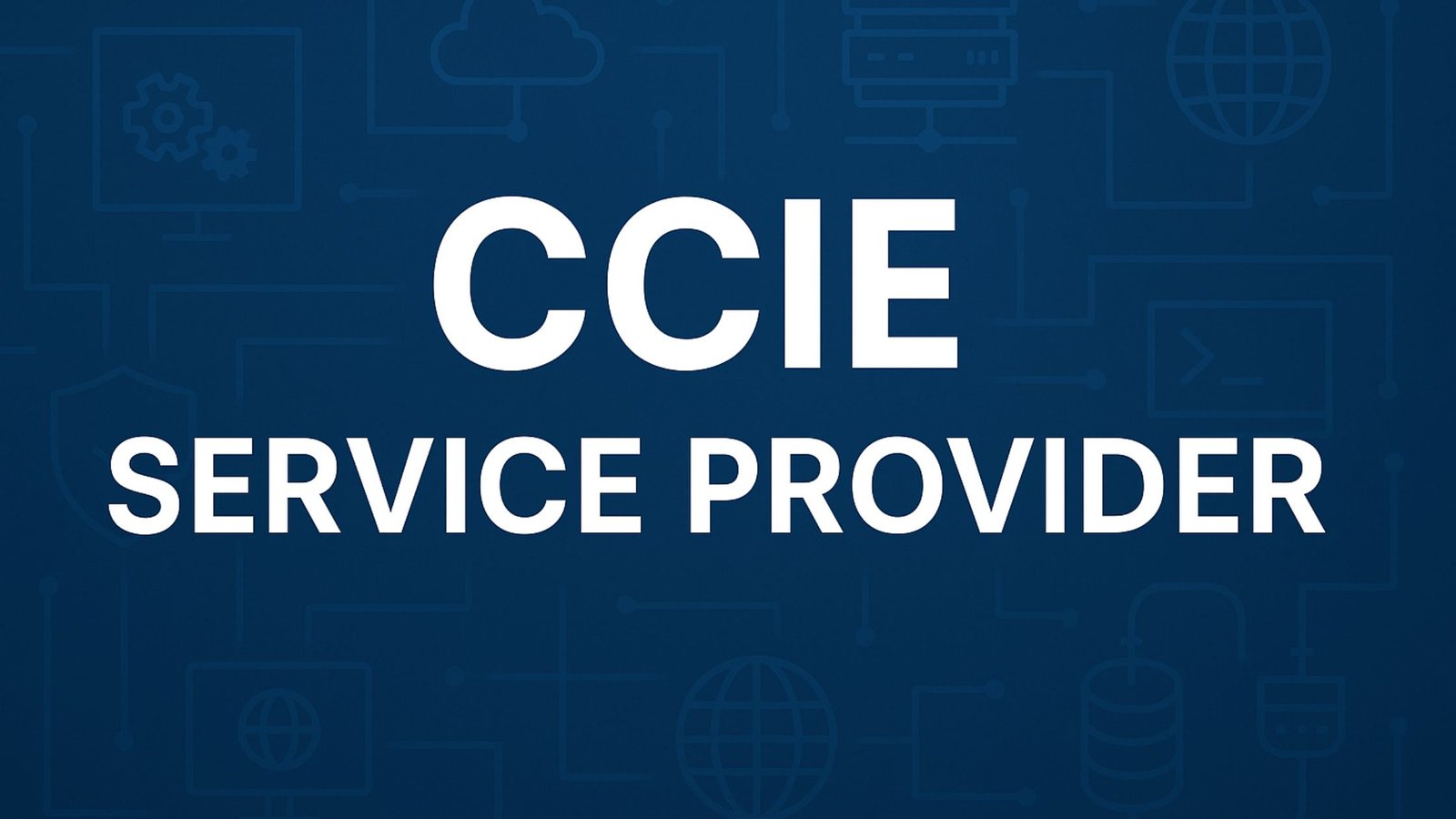In a world where reliable internet, cloud infrastructure, and digital services are essential to business and life, service providers form the backbone of connectivity. At the heart of managing these large-scale infrastructures are networking professionals with advanced skills—and one of the most respected credentials in this space is the CCIE Service Provider certification.
This Cisco Certified Internetwork Expert (CCIE) track is tailored for engineers and architects who work with carrier-grade IP networks. If you’re aiming to stand out in the competitive landscape of telecom and ISP engineering, this certification is a game-changer.
What Makes the CCIE Service Provider Unique?
Unlike general networking certifications, CCIE Service Provider is focused on service provider-specific technologies such as MPLS, QoS, advanced BGP, multicast, and Segment Routing. These technologies are critical for delivering scalable, high-availability services over wide-area networks.
This certification is not only about mastering protocols—it’s about understanding how to architect complex systems that meet the performance and reliability demands of millions of users.
Who Benefits from the CCIE Service Provider Certification?
The CCIE SP certification is ideal for:
-
ISP and telecom professionals
-
Service provider network architects
-
Systems engineers at Cisco or its partners
-
Backbone infrastructure designers
-
Anyone managing carrier-grade routers like ASR, NCS, or CRS platforms
If you are working in or planning to enter the world of service provider networking, this certification sets a solid foundation and distinguishes your profile.
Prerequisites and Exam Format
No Formal Prerequisites—But Experience is Crucial
Although Cisco doesn’t mandate any prerequisite certifications for the CCIE, it’s strongly recommended that candidates have:
-
5 to 7 years of experience with service provider solutions
-
A solid understanding of CCNP-level technologies
The CCIE SP Certification Path:
-
Step 1 – Pass the 350-501 SPCOR Written Exam
-
This 2-hour test covers core service provider infrastructure topics like routing, services, QoS, and automation.
-
-
Step 2 – Pass the CCIE SP Lab Exam
-
An 8-hour hands-on lab focused on diagnosing, configuring, and optimizing real-world service provider network topologies.
-
The lab is the real challenge, requiring not just knowledge, but the ability to think critically and work efficiently under time constraints.
Exam Topics at a Glance
The CCIE Service Provider exam blueprint includes six major domains:
-
Architecture – Network design models and high-availability strategies
-
Core Routing – OSPF, IS-IS, and advanced BGP implementations
-
Services – L2VPN, L3VPN, Multicast, and Carrier Ethernet
-
Quality of Service (QoS) – Policy shaping, classification, queuing models
-
Security – Control-plane and infrastructure protection
-
Automation and Assurance – Python, NETCONF, RESTCONF, and model-driven telemetry
Success requires both theoretical knowledge and practical configuration skills.
Real-World Value of CCIE Service Provider
Boosted Salary and Promotions
CCIEs often enjoy premium pay packages. Professionals holding the CCIE Service Provider certification frequently land roles with salaries above $130,000, especially in markets like the U.S., Europe, and the Middle East.
Increased Global Opportunities
Telecom companies around the world look for CCIEs to manage core networks, international data centers, and undersea cable routing systems. The certification is accepted globally, which enhances your job mobility.
Leadership in Network Projects
CCIE-certified engineers often lead large-scale deployment and migration projects. From planning to execution, they are the go-to experts for strategic networking decisions.
Tools and Strategies for Success
Use Labs Extensively
Hands-on experience is essential. Platforms like EVE-NG, Cisco VIRL, or real hardware labs allow you to simulate actual service provider environments.
Build a Daily Practice Routine
Consistency is key. Spend time daily on routing protocols, MPLS scenarios, and automation. Break topics into manageable sessions and build repetition.
Leverage Study Communities
Join CCIE SP study groups on LinkedIn, Discord, or the Cisco Learning Network. Collaborating with peers accelerates understanding and offers moral support during preparation.
Invest in Bootcamps (Optional)
Many training providers offer CCIE SP bootcamps—intensive programs that simulate the lab environment. Choose reputable training centers with instructors who are certified CCIEs themselves.
Mistakes to Avoid During Preparation
-
Neglecting Automation Topics
Today’s SP networks rely on programmable interfaces and telemetry. Don’t ignore Python and YANG models. -
Overlooking Documentation Navigation
The lab exam allows access to Cisco Docs. Practice navigating them efficiently during mock labs. -
Ignoring Exam Strategy
Understand how the lab exam is scored. Tackle easier tasks first and avoid spending too much time on one section. -
Lack of Troubleshooting Practice
Half of your lab score depends on your ability to troubleshoot. Simulate failure scenarios and practice under time pressure.
How Long Does It Take to Prepare?
A typical timeline is:
-
6 Months – For full-time network engineers with SP experience
-
9-12 Months – For professionals preparing part-time
-
12+ Months – For those new to service provider technologies
It’s not a race—quality preparation matters more than speed.
Comparing CCIE SP to Other Cisco Tracks
| Certification Track | Key Focus | Ideal Audience |
|---|---|---|
| CCIE Enterprise | LAN, SD-WAN, wireless | Corporate network engineers |
| CCIE Security | Firewalls, VPNs, identity | Security specialists |
| CCIE Service Provider | MPLS, QoS, carrier routing | Telecom, ISP professionals |
| CCIE Data Center | UCS, ACI, Storage | Data center architects |
The CCIE Service Provider stands out for those targeting telecom giants, ISPs, or international carriers.
Final Thoughts: Is CCIE Service Provider Worth It in 2025?
Absolutely. With 5G rollouts, edge computing, and the expansion of cloud services, the demand for robust service provider networks is only increasing. Cisco’s CCIE Service Provider certification positions you as an elite professional equipped to lead in this space.
It’s a commitment of time and energy—but the rewards include top-tier roles, competitive salaries, and deep industry respect.

Leave a Reply